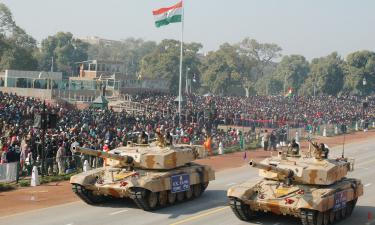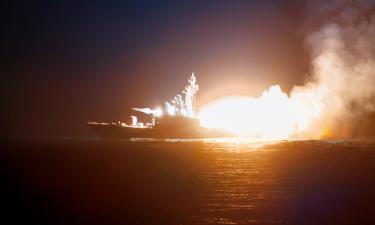North Korea denounces U.S. nuclear policy, claims to have «deterrent»
North Korea warned Sunday it had a "powerful deterrent" against a U.S. nuclear attack, criticizing moves in Washington to authorize pre-emptive use of atomic weapons against states or terrorists armed with weapons of mass destruction.
"Our armed forces and people take pride that we've secured a powerful deterrent for self-defense against U.S. nuclear threats," the North's official Minju Joson newspaper said in a commentary.
It did not elaborate on the deterrent, but the North usually uses the term to refer to its nuclear weapons. In February, North Korea declared that it had built nuclear weapons, although the claim could not be verified independently.
The state-run newspaper was deriding a document being updated by the Pentagon to reflect U.S. President George W. Bush's 2002 doctrine of pre-emption.
The revised version of the "Doctrine for Joint Nuclear Operations" envisions the prior use of nuclear weapons to deter terrorists from using weapons of mass destruction against the United States and its allies.
The Bush administration laid out the pre-emption doctrine months before the Iraq war began in March 2003. It argued that the United States cannot rely on its vast arsenal to deter attacks, especially from biological weapons, and must be willing to strike first to destroy the threat.
North Korea fears it might become the next U.S. target after Iraq. Bush has labeled Iran, Iraq and North Korea as the "axis of evil." "The United States' nuclear stick won't work for us ... if the United States lost its discretion and forces us to a nuclear war, we would exercise our self-defense right as a strong retaliation measure," the newspaper said.
The North also accused the United States of being the "world's primary nuclear proliferator," saying its new nuclear doctrine, if adopted, would touch off a fresh nuclear arms race among superpowers. North Korea has been locked in a bitter standoff with Washington over its nuclear program for nearly three years.
The two countries were part of a landmark six-nation accord last week in which the North pledged to abandon its nuclear programs in exchange for economic aid, security assurances and improved ties with the United States.
The North, however, threw that commitment into question a day later when it refused to dismantle its nuclear program unless Washington gives it civilian nuclear reactors for power generation. The issue is expected to be the key topic when the six countries _ the United States, the two Koreas, China, Japan and Russia _ meet again in November, AP reports.
Subscribe to Pravda.Ru Telegram channel, Facebook, RSS!





